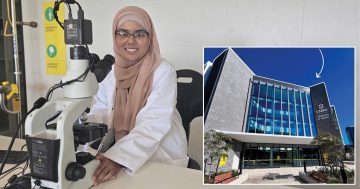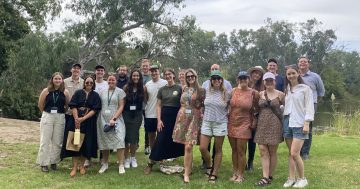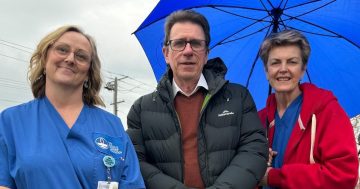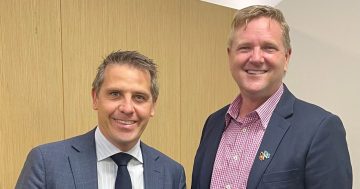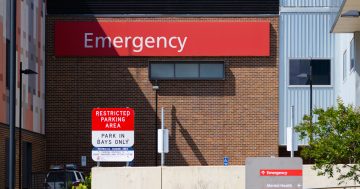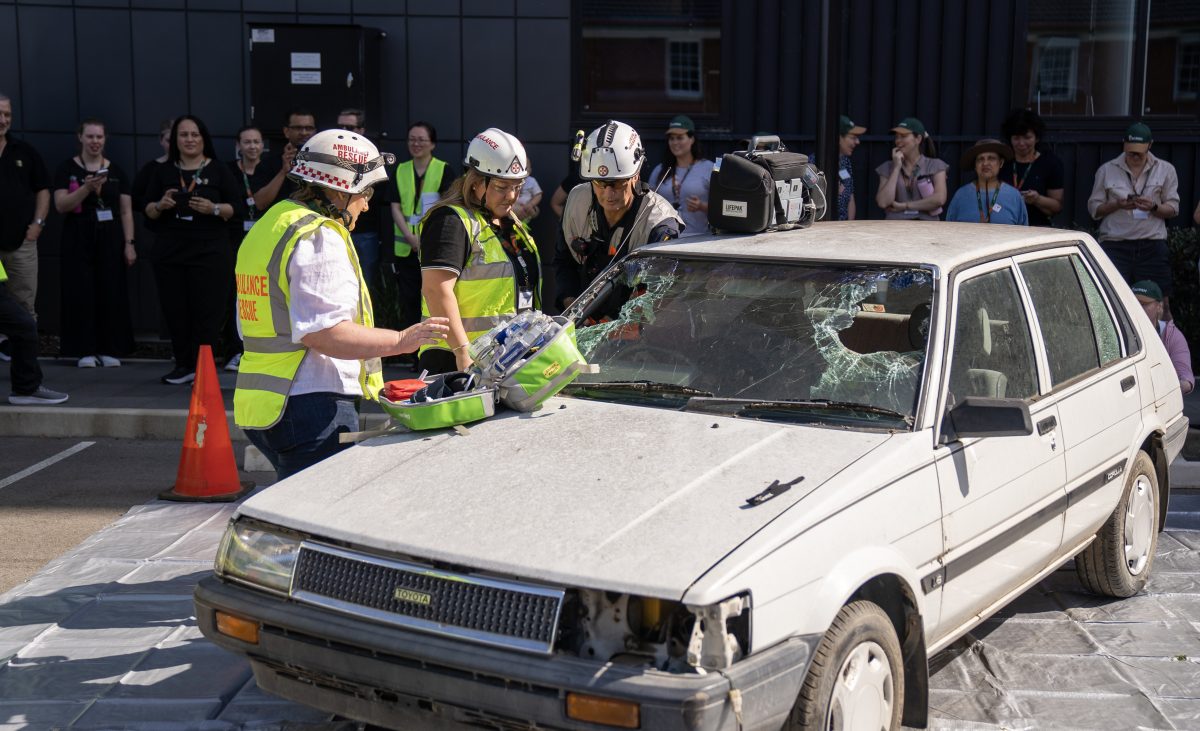
Responding to a car crash was among the sessions covered at the Australian College of Rural and Remote Medicine’s two-day workshop for rural registrars at Wagga Wagga Base Hospital. Photo: Damian Jenkins – Next In Line Films.
More than 40 rural doctors and medical educators gathered in Wagga Wagga recently for an intensive two-day workshop aimed at equipping registrars with essential skills and practical knowledge in rural generalism.
The Australian College of Rural and Remote Medicine (ACRRM) hosted the workshop at Wagga Wagga Base Hospital. Over the two days, sessions covered topics such as obstetrics, anaesthetics, men’s health, mental health, palliative care, and eye examinations. The second day focused on scenario-based training with local emergency services.
“Wagga is a great hub with a hospital and excellent health facilities,” said ACRRM’s national director of training Dr Greg Gladman.
ACRRM NSW lead medical educator Dr Ariana Arulampalam said the workshop provided registrars with additional learning opportunities tailored to regional areas.
“These workshops are always a positive experience, and registrars choose to attend them to enhance their knowledge and skills,” Dr Arulampalam said.
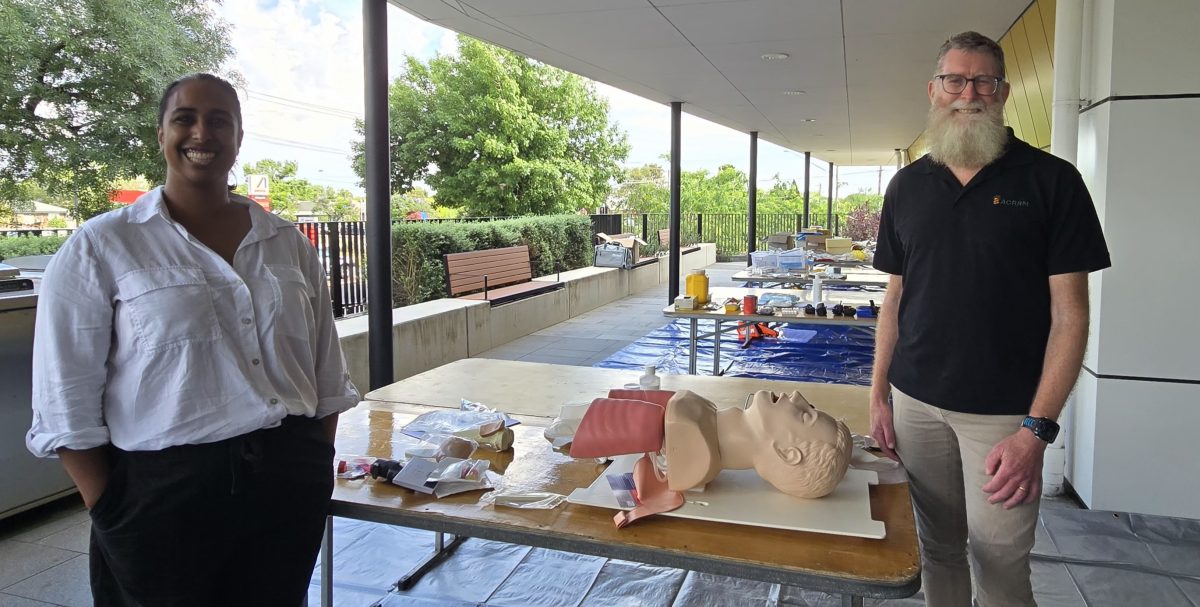
ACRRM NSW’s lead medical educator Dr Ariana Arulampalam and national director of training Dr Greg Gladman at Wagga Wagga Base Hospital. Photos: Chloe Van Gerwen.
The workshop offered a range of hands-on learning activities, including a mass casualty simulation involving fire and rescue teams, paramedics, and other emergency services.
“We aim to help doctors understand how different services work together during major incidents, such as a multi-vehicle crash or situations involving multiple casualties,” Dr Arulampalam said.
“Our registrars may eventually work in some really rural and remote areas where they might be the only doctor in the town with maybe a nurse or a paramedic … where the doctors are really involved with that first response.
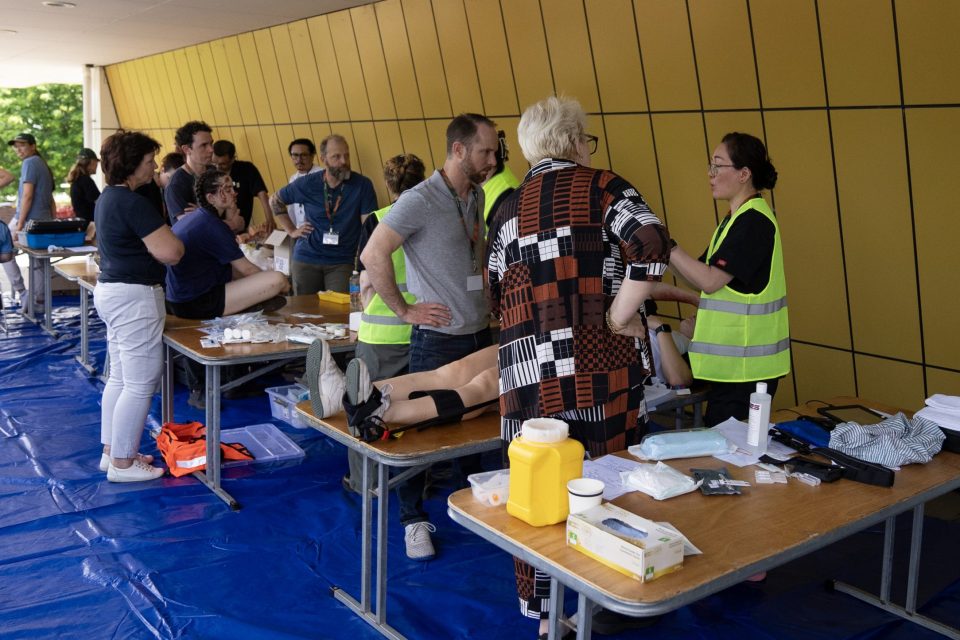
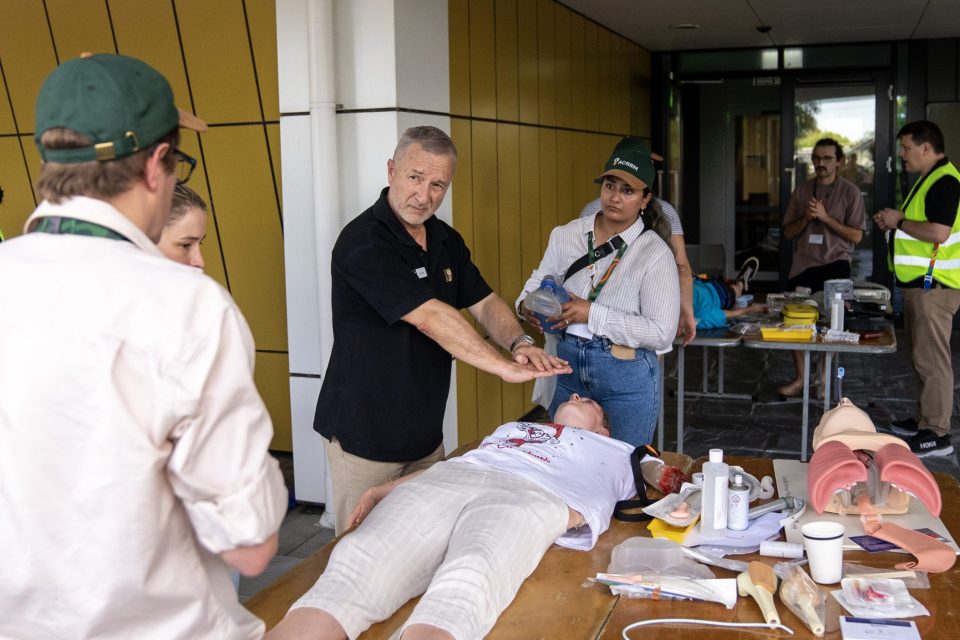
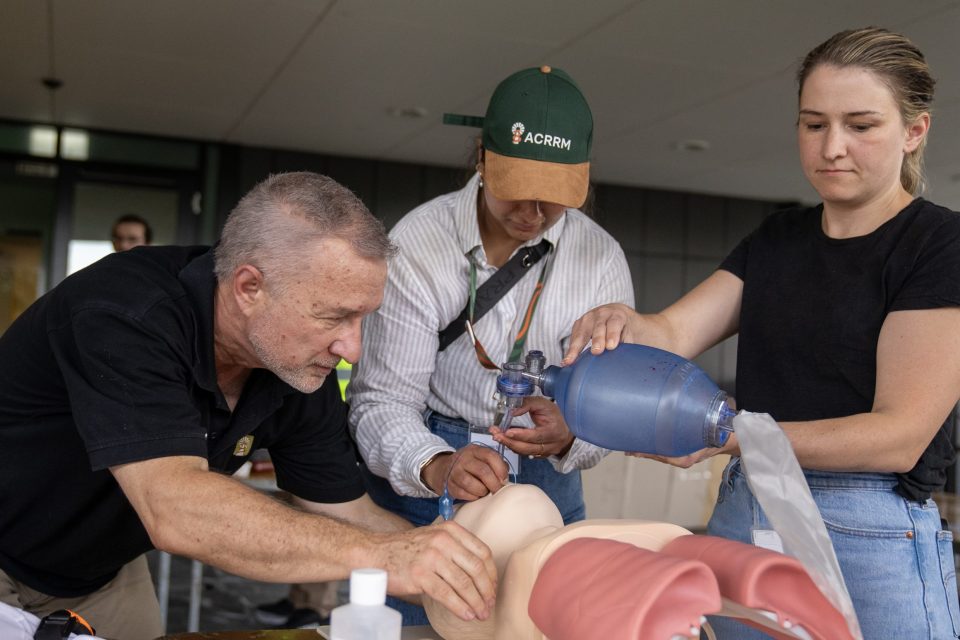
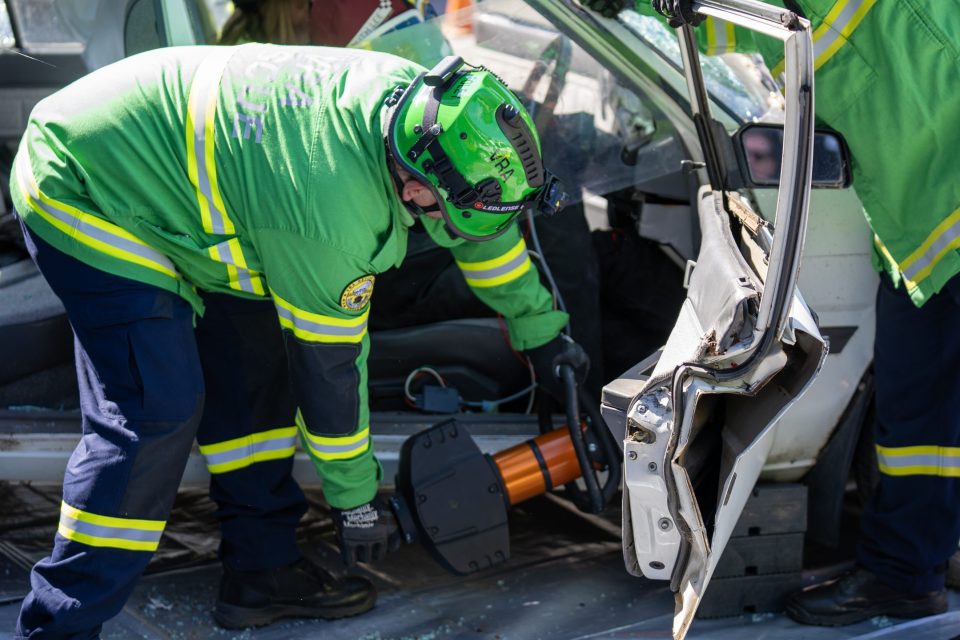
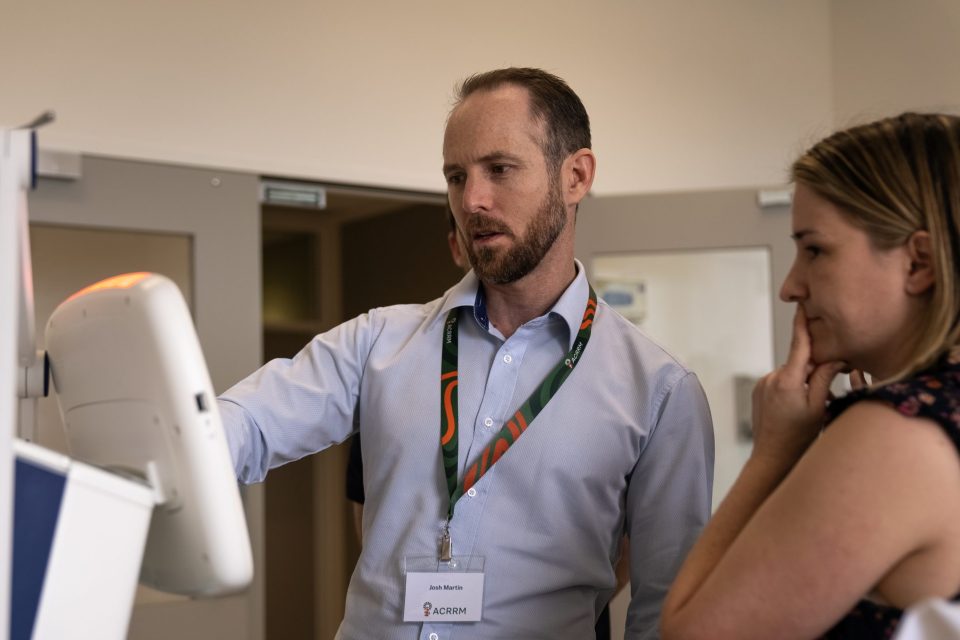
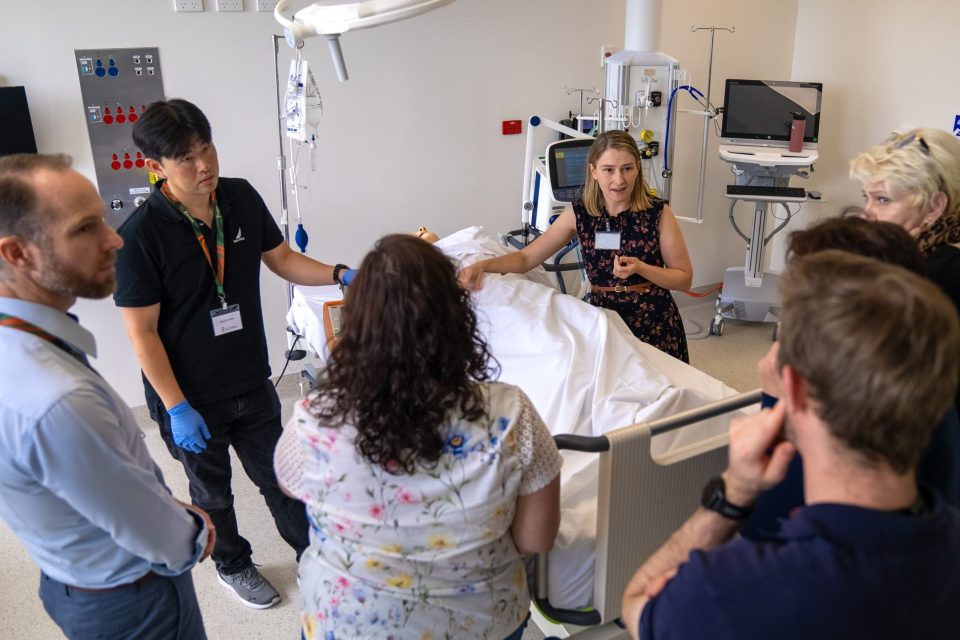
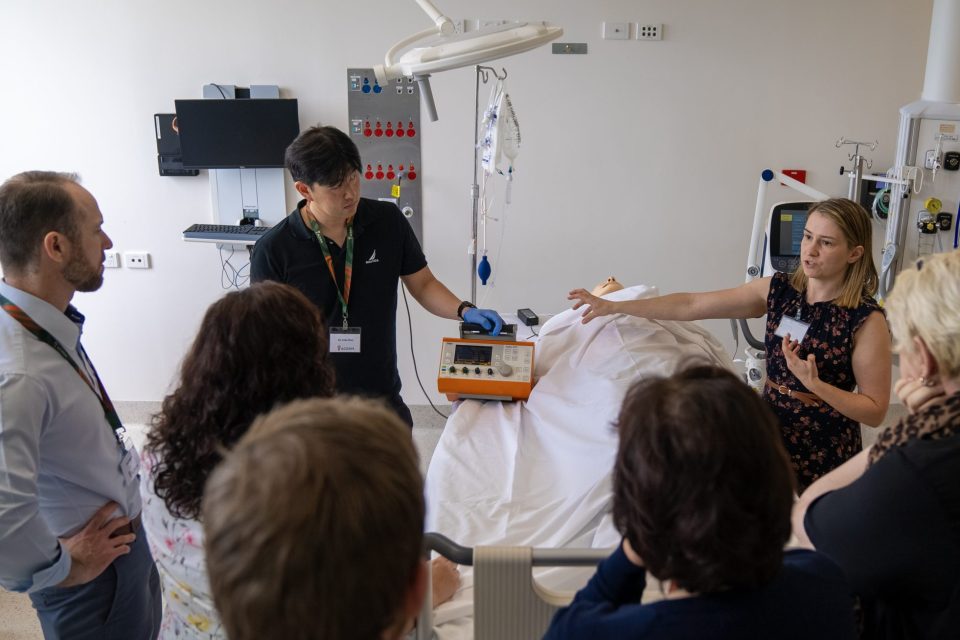
“So we want them to have an understanding of where doctors could fit into that and give them a little bit of exposure as to what that might feel like. Should it happen in their town, they’re just that little bit more prepared.”
Dr Gladman said simulation was a valuable tool in medical education.
He said the simulations allowed doctors to experience challenging situations they might face in the future. And if they found themselves in such situations, they could draw on practical experience gained during the training.
Dr Gladman also highlighted the diverse role of rural doctors.
“It’s not just sitting in four walls of a general practice clinic, there’s a whole lot extra to it,” he said.
“Many of our doctors in small towns have a hospital they’ll admit patients to.
“They’ll see people in their emergency department, may get called to motor vehicle accidents out on the road … and someone may walk in and be about to push their baby out.
“So they need to have all those skills, or at least an understanding of those, much more than just the consulting in general practice.”







